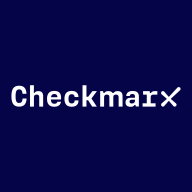

Checkmarx One and GitHub compete in the application development and security fields. Checkmarx One seems to have the upper hand in security features and comprehensive scanning support, while GitHub excels in collaboration and CI/CD capabilities.
Features: Checkmarx One offers robust static application security testing without the need to compile code, reduces false positives, and supports multiple programming languages integrating seamlessly with development tools. GitHub provides excellent collaboration features such as version control, branching, and GitHub Actions for CI/CD functionalities.
Room for Improvement: Checkmarx One could benefit from better reporting, enhanced language support, and reducing false positives. GitHub needs more robust project management tools, improved security features, and better integration with diverse development processes.
Ease of Deployment and Customer Service: Checkmarx One is flexible with on-premises and cloud deployment options, and is praised for its technical support. GitHub is known for its intuitive cloud-based deployment setup and responsive customer service, though enterprise needs might require further configuration.
Pricing and ROI: Checkmarx One is perceived as expensive, yet offers valuable security investments and flexible licensing options, with potential savings through Azure Marketplace. GitHub is often free for public repositories and provides cost-effective solutions for private use, adding significant value for developmental teams.
Overall, between the fast scanning, automation, automatic reporting, and easy detection, it has reduced manual effort enough that we did not need an extra reviewer, even as our codebase or team size grew.
Based on my interactions with the clients, I can tell that there is a return on investment because if something is not profitable and it's not helping to save costs or vulnerabilities, clients wouldn't come back to renew their license year after year.
If you raise a support case with Checkmarx, it is handled smoothly.
The customer support team is amazing and they provide on-phone call, email support, and on-website support.
I have relied on Checkmarx One customer support hundreds of times for several things, and Checkmarx One support is very proactive and very responsive.
The technical support from GitHub is generally good, and they communicate effectively.
Some forums help you get answers faster since you just type in your concern and see resolutions from other engineers.
I have not used GitHub's technical support extensively because there are many resources and a robust knowledge base available due to the large user community.
Approximately four billion lines of code are being scanned monthly.
Since it is cloud-based, the infrastructure and PaaS, IaaS, and SaaS are taken care of by the cloud marketplace.
Checkmarx One's scalability has changed my organization because the strong collaboration between the development and security team helps us to do things much faster.
We have never had a problem with scalability, so I would rate it at least eight to nine.
GitHub is more scalable than on-prem solutions, allowing for cloud-based scaling which is beneficial for processing large workloads efficiently.
I would rate the stability of this solution a nine on a scale of 1 to 10 where one is low stability and 10 is high.
Checkmarx One is often down when the cloud provider experiences issues.
If a skilled developer uses it, it is ten out of ten for stability.
It provides a reliable environment for code management.
GitHub is mostly stable, but there can be occasional hiccups.
Integration into the IDE being used would be beneficial so that code does not need to be uploaded to the website and an IDE-friendly report could be generated.
It could suggest how the code base is written and automatically populate the source code with three different solution options to choose from.
If you can improve the speed optimization, it takes around 30 to 40 minutes for checking a build. If you can make it within five minutes or 10 minutes, that would be great.
When working with the CI/CD pipeline and somebody is writing the workflow file, it would be best to include the AI feature so if they write incorrect code, it will notify me about it in the same dashboard, eliminating the need to use third-party tools to review the file.
I am providing this feedback for Copilot because it seems more widespread and more companies allow it rather than Amp, and it would be beneficial if they catch up with Amp on this capability.
Security could make GitHub better. OWASP Top Ten security advisors could be integrated on GitHub, and it could provide checks and advice.
For a small team under 50 developers, normal expenses come under 30 to 60K.
Due to the number of years I've implemented Checkmarx One, there are rebates and discounts from the OEM which makes it a lot more profitable.
The pricing should be reasonable, matching what we are paying for.
Normally, GitHub is not expensive, but it would be welcome if it reduces costs for developing countries.
The pricing of GitHub is reasonable, with the cost being around seven dollars per user per month for private repositories.
The pricing of GitHub depends on the choice of solutions, such as building one's own GitHub Runners to save money or using GitHub's Runners with extra costs.
Since replacing the previous tool, SAST and SCA scans are conducted in a couple of minutes instead of hours or days.
The best features Checkmarx One offers, over the past years, include broad language and technical support that Checkmarx provides, covering most languages.
Checkmarx One has positively impacted our organization as we tend to find vulnerabilities very early in the development cycle.
The pull request facility for code review.
GitHub Actions allow for creating multiple jobs that run in different stages such as build, test, and deploy, which enable better visibility and control over the deployment pipeline.
For branching, it works well, especially in an agile environment.
| Product | Market Share (%) |
|---|---|
| Checkmarx One | 9.9% |
| GitHub | 1.3% |
| Other | 88.8% |


| Company Size | Count |
|---|---|
| Small Business | 32 |
| Midsize Enterprise | 9 |
| Large Enterprise | 46 |
| Company Size | Count |
|---|---|
| Small Business | 42 |
| Midsize Enterprise | 13 |
| Large Enterprise | 49 |
Checkmarx One is an enterprise cloud-native application security platform focused on providing cross-tool, correlated results to help AppSec and developer teams prioritize where to focus time and resources.
Checkmarx One offers comprehensive application scanning across the SDLC:
Checkmarx One provides everything you need to secure application development from the first line of code through deployment and runtime in the cloud. With an ever-evolving set of AppSec engines, correlation and prioritization features, and AI capabilities, Checkmarx One helps consolidate expanding lists of AppSec tools and make better sense of results. Its capabilities are designed to provide an improved developer experience to build trust with development teams and ensure the success of your AppSec program investment.
GitHub is a web-based Git repository hosting service. It offers all of the distributed revision control and source code management (SCM) functionality of Git as well as adding its own features. Unlike Git, which is strictly a command-line tool, GitHub provides a Web-based graphical interface and desktop as well as mobile integration. It also provides access control and several collaboration features such as bug tracking, feature requests, task management, and wikis for every project.
We monitor all Application Security Tools reviews to prevent fraudulent reviews and keep review quality high. We do not post reviews by company employees or direct competitors. We validate each review for authenticity via cross-reference with LinkedIn, and personal follow-up with the reviewer when necessary.